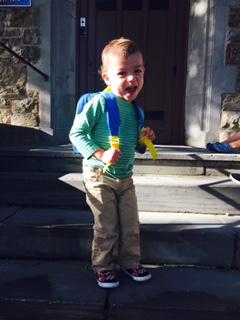
-
Understanding primary immunodeficiency (PI)

Understanding PI
The more you understand about primary immunodeficiency (PI), the better you can live with the disease or support others in your life with PI. Learn more about PI, including the various diagnoses and treatment options.
-
Living with PI
-
Addressing mental health
-
Explaining your diagnosis
- General care
- Get support
- For parents and guardians
-
Managing workplace issues
- Navigating insurance
-
Traveling safely

Living with PI
Living with primary immunodeficiency (PI) can be challenging, but you’re not alone—many people with PI lead full and active lives. With the right support and resources, you can, too.
-
Addressing mental health
-
Get involved

Get involved
Be a hero for those with PI. Change lives by promoting primary immunodeficiency (PI) awareness and taking action in your community through advocacy, donating, volunteering, or fundraising.
-
Advancing research and clinical care
-
Research Grant Program
-
Consulting immunologist
-
Diagnosing PI
-
Getting prior authorization
-
Clinician education
-
Survey research
-
Participating in clinical trials

Advancing research and clinical care
Whether you’re a clinician, researcher, or an individual with primary immunodeficiency (PI), IDF has resources to help you advance the field. Get details on surveys, grants, and clinical trials.
-
Research Grant Program

As our son, Sebastian, got ready for his first day of school this morning, we, like many parents of children with chronic granulomatous disease (CGD), were filled with a combination of intense excitement and deep fear.
Since Sebastian’s CGD diagnosis at six months old, my husband and I have spent the last three years protecting him from the outside world. Although he was not living in a bubble per se, we did everything in our power to ensure he was safe, and we limited his exposure to others, especially to anyone who had an infection.
Now, he is starting preschool, where we will not be able to protect him directly, and he will be exposed to other children who will most certainly have infections. It can be a downright terrifying prospect for parents of children who have CGD.
For all these reasons, when we watched Sebastian walk across the threshold of his preschool classroom, it was a big step for him and perhaps an even bigger one for us.
Thankfully, we know that CGD can be managed successfully. Much of the immune system of a patient with CGD is normal; with daily prophylaxis, many patients with CGD are leading healthy, and productive lives. As a result, children with CGD can attend preschool, K-12th grade, college, and beyond. During that time, they can also participate in most regular activities. The major difference is that students with CGD may miss school for longer periods of time when they are sick. They also need to avoid exposure to school-related activities that can put them at risk, such as playing in sandboxes, field trips to a farm, planting seeds in soil, or taking a hayride.
Communication with your school is key
To assure that your child’s needs are met, talking with school personnel about CGD is of utmost importance. You may be surprised by their response. For example, once we disclosed that Sebastian had CGD in our initial school meeting, his teachers immediately asked for information in order to learn more about his condition. We were happy to email them a link to LivingwithCGD.org, directing them to the “About CGD” and “Living with CGD” sections. The next day, they expressed their gratitude for all the useful information, and they said they felt prepared to support us in keeping Sebastian healthy. These are the words that every parent wants to hear!
Additional materials to share with school personnel include:
- A letter from your child’s healthcare provider, listing their medical condition, treatment/medication and, if necessary, recommendations for accommodations/modifications.
- Copies of IDF publications, such as:
Empower yourself by knowing your child’s educational rights
It’s important to keep in mind that federal laws include requirements and guidelines for how schools should respond if a student’s learning is affected by a health condition, such as CGD. Parents, students, and school personnel should be aware of the laws that ensure equal opportunities to individuals with disabilities for the following reasons:
- The laws help parents, students, and school personnel work together to assure academic success.
- The laws enable parents and students to effectively advocate for their educational rights and participate as a member of the educational team.
- The laws assist school personnel in understanding all the services available to students, ensure protection of civil rights, and create a partnership with families and other agencies.
More information about federal laws to protect your child in an educational setting is included in the IDF School Guide for Students with Primary Immunodeficiency Diseases.
Remember that you are your child’s best advocate, and IDF provides resources and materials to help children with CGD, and their parents, begin school with confidence.
Related resources

Education policy changes could impact students with PI

Undiagnosed: Reuben & Sherri Johnson on CGD, chronic illness, and the fight for healthcare

ChronicXTwenties: College and mental health roundtable
Sign up for updates from IDF
Receive news and helpful resources to your cell phone or inbox. You can change or cancel your subscription at any time.





The Immune Deficiency Foundation improves the diagnosis, treatment, and quality of life for every person affected by primary immunodeficiency.
We foster a community that is connected, engaged, and empowered through advocacy, education, and research.
Combined Charity Campaign | CFC# 66309

